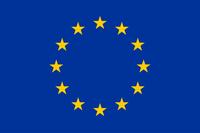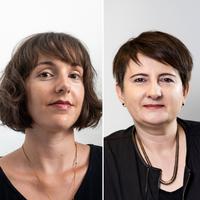The EU Horizon 2020 MERGING project
Housing for immigrants and community integration in Europe and beyond: Strategies, policies, dwellings, and governance.
MERGING is a three year interdisciplinary research project funded by the European Union aiming at exploring migrant integration through participatory housing initiatives. The project brings together seven disciplines from ten partners from six European countries to test an innovative approach aiming to facilitate and ensure the sustainability of migrants’ integration process. MERGING reviews existing knowledge, integration policies and initiatives across macro (EU migration policies), meso (regional economic & social systems) and micro (individual practices) levels in which housing occupies a prominent place. To ensure the success and the sustainability of the project, immigrants, hosts, volunteers, NGOs, companies, public administrations and citizens will be involved in the implementation of the pilot housing projects as well as in the development of housing policy recommendations. MERGING will contribute extensively to integration studies - empirically, methodologically and conceptually - through its place- and migrant-centred approach. Last but not least, MERGING will suggest evidence-based policy recommendations and applied innovative solutions in the field of migrant integration in Europe and therefore it will offer direct benefits to both migrants and host communities.


Interview about the MERGING project
Centre on Global Migration (CGM) conducted an interview with Alexandra Bousiou and Andrea Spehar to get a deeper insight into the objectives, contributions, challenges, and the future of the MERGING project. Alexandra Bousiou is a post-doctoral researcher at the School of Global Studies (SGS), university of Gothenburg, and Andrea Spehar is Associate Professor of Political Science and Director of CGM at the University of Gothenburg, Sweden. In this page you will get more information about the MERGING project. You are also welcome to contact Alexandra and Andrea with further questions.
Thank you Alexandra and Andrea for taking the time to do this interview about the Merging project.
Q1: Would you please describe the project’s objectives and goals?
- There is lack of affordable housing possibilities for newcomers, especially refugees, and that is a key issues we want to analyze. Our aim is to compare experiences of different countries and local communities to find out what are the best practices and what are the barriers for immigrants. We want to achieve inclusive and innovative practices for the integration of recently arrived migrants in local communities.
- Our goal is to bring to the forefront the role of housing in migrants’ integration and social inclusion. We will begin with an overview of the policies and practices around immigrants’ housing in different European countries. At the second level we will build on this knowledge to develop three pilot housing projects in France, Sweden and Spain in order to suggest more sustainable integration processes and housing policies for migrants. We will also delve into the various strategies that different stakeholders are using to approach this policy issue from politicians to civil servants, architects, NGOs and migrants. We are also interested in how these actors interact with each other. Who do they collaborate with and how they form networks in pursuing their goals.

Contact details
Thank you Alexandra and Andrea for taking the time to do this interview about the Merging project.
Q1: Would you please describe the project’s objectives and goals?
- There is lack of affordable housing possibilities for newcomers, especially refugees, and that is a key issues we want to analyze. Our aim is to compare experiences of different countries and local communities to find out what are the best practices and what are the barriers for immigrants. We want to achieve inclusive and innovative practices for the integration of recently arrived migrants in local communities.
- Our goal is to bring to the forefront the role of housing in migrants’ integration and social inclusion. We will begin with an overview of the policies and practices around immigrants’ housing in different European countries. At the second level we will build on this knowledge to develop three pilot housing projects in France, Sweden and Spain in order to suggest more sustainable integration processes and housing policies for migrants. We will also delve into the various strategies that different stakeholders are using to approach this policy issue from politicians to civil servants, architects, NGOs and migrants. We are also interested in how these actors interact with each other. Who do they collaborate with and how they form networks in pursuing their goals.
Q2: Would you please introduce the partners in the MERGING project and explain about your roles in this project?
- The project leader is the university LYON 3. In particular their expertise is on management of organizations, entrepreneurship and international management. They are the coordinators and they are involved in different work packages. We are working closely with the University of Valencia at this stage. We collaborate with researchers from the Social Sciences Faculty, with expertise in the social inclusion of refugees and migrants, and also from the Institute of Local Development, which is a research centre specialised in the theory and practice of local development in its broadest sense. We are collaborating with them in identifying the policies and the legislation in place, as well as in exploring what previous research has contributed to. University of Bologna with the Department of Education Studies “Giovanni Maria Bertin” and the Department of Management is also quite involved in this work package and will take the lead work package 3 (WP3). There is also university of Rennes with the research laboratory Arènes which work in three main fields, social and health policies; engagement, political life and media; local public action.
We are also working with Malmö University and the Malmö Institute for Studies of Migration, Diversity and Welfare (MIM) which is an international research centre with a multidisciplinary profile They are responsible for the overview of the quantitative part of the project in Sweden. We have also a partner which comes with the knowledge of urban planning and architecture. Quatorze is a non-profit organization that specifies in social architecture for resilient and agile cities. And then we have another two partners from the civil society, COTA (Collectif d’Echanges pour la Technologie Appropriée) and Social Business Earth. They work in relation to developing focus groups and evaluating the pilot project. They will help us to reach our goal which is to have three pilot projects in Lyon, Valencia and Gothenburg.
We are leading work package seven (WP7) on governance. We participate in almost all other work packages. In the first half of this year we are working on a report on the multi-level governance of housing in the countries that we are looking at. We will use this report as the ground for the co-creation workshop that we will be facilitating and organizing next year. Also we are going to publish a policy report at the end of each year of the project to communicate the results from our research to policy makers and interested stakeholders.
Q3: What results do you expect to get?
- We expect to see the interconnection between housing and integration processes; access to housing, types of housing, and to what extent different policies have different integration outcome, such as how people can or cannot find a job and/or be part of the community/society. One of our goals is to make a theoretical contribution in relation to the role of housing in integration.
- We are now in the beginning of the project. The project started at January 2021. We had the first kick off meeting (unfortunately via zoom). It is a bit challenging from the perspective of collaboration. It is more difficult to get to know the people online. Fortunately, we have good partners and the coordination of the project has so far been very efficient. I hope that we continue deliver different outcomes and tasks that we have for this project. It is a three year project and we have a lot of time to both build theoretical frameworks but also collect the data that is needed to answer all the questions that we have in this project.
Q4: How do you see the future of this project?
- We are in the beginning and we don’t know yet about the outcomes. During this first year we are focusing on building the analytical framework and analyzing existing academic literature and policies. During the second year we will employ the knowledge we gathered in the co-creation workshop we will host in Gothenburg. Stakeholders will be sitting together discussing/designing policies and have a dialog in relation to different contexts to identify the possibilities, the margins for enhanced collaboration, and the challenges and barriers they are facing when they are designing and implementing different policies. This process will be also interesting in relation to comparing the policy possibilities for different types of administrations more centralized or more decentralized. We cannot predict the results of the co-creation workshops. We can only make sure that we bring the right people on the table and we facilitate their collaborative process.
Q5: What are some of the challenges you may encounter in this project?
- The first challenge regards the three pilot housing projects that we plan to build from scratch or develop via repurposing existing buildings. The choice between building something new or repurpose existing buildings will depend a lot on the local context. In some contexts, like the Swedish one, acquiring a building permit can take a very long time. Also, as social scientists we are not very familiar with the practical aspects of building. Therefore, it will be both challenging and exciting to work with our architect and urban planner colleagues in the pilot projects. It will be a new experience for us to see how this process evolves and the issues we might have to face there.
- We cannot disregard the impact of the pandemic and we don’t know how fast it will be resolved. We, all the partners, were supposed to meet in person and we plan to conduct field work and to bring stakeholders to Gothenburg for the workshop. We need to stay very flexible, which is not easy considering that it is a big project and several partners are involved. But I’m optimistic that we’ll navigate these problems. And of course there will be impacts of Covid-19 on immigrants/refugees. It will be an empirical question for us in relation to housing, housing conditions and crowded housing.
Thank you Alexandra and Andrea for your time to answer my questions. It was very interesting to know more about the MERGING project. I wish you good luck!
Interview by Golsa Nouri Hosseini
Research administrator and communications officer
Centre on Global Migration (CGM)
